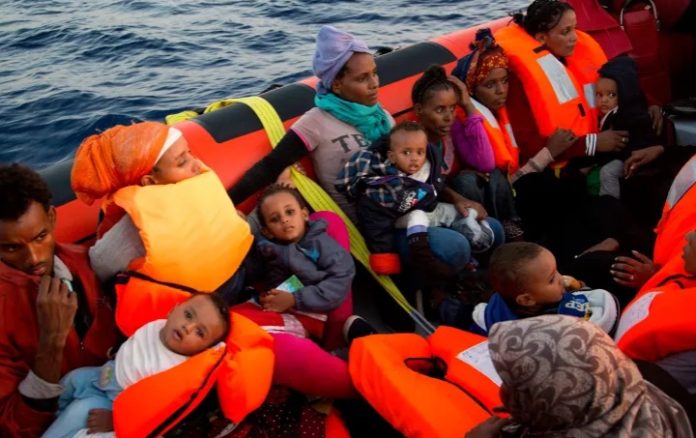EU ministers plan to include in their negotiating position on the Crisis Management Regulation a number of new rules allowing border control officers to prevent third-country nationals from crossing EU borders and seeking asylum in cases of so-called “instrumentalisation”, according to Euractiv.
“Instrumentalisation” has been used in recent years by Russia, Belarus and Morocco as a way of increasing pressure on national border authorities. This process is the practice of governments opening their borders or encouraging migrants to cross EU territory. A diplomatic source told Euractiv:
“It seems now that instrumentalisation will not be a separate text but should be covered by the Crisis Management Regulation.”
EU interior ministers are currently discussing the Crisis Management Regulation aimed at dealing with situations where large numbers of third-country nationals cross European borders within a short period of time. This Regulation is a part of the proposed Migration and Asylum Pact.
The European Commission proposed the pact in September 2020. It consists of ten legislative proposals aimed at reviewing and updating the bloc’s migration policy.
According to the European Parliament’s position on the Crisis Management Regulation adopted in April, the Commission will determine whether a country is in a “crisis” or not. In such a case, a solidarity clause will come into force with other EU countries, which can decide how to provide assistance, such as providing money, equipment or offering their territory to host migrants.
Against the backdrop of anti-crisis measures, EU ministers are pushing for the introduction of an “exception” to the normal processing of asylum applications for cases of “instrumentalisation”, Euractiv reports. The exceptions concern cases when, for example, Belarus, Russia or Morocco encourage and/or facilitate the arrival of third-country nationals from Africa or the Middle East to the EU through their countries.
Such a change in the law would allow EU member states to give border guards the power to decide who can apply for asylum and who cannot. However, it is not yet known how and under whose authority cases would be classified as “instrumentalisation”.
In early 2022, the opening of Belarusian borders to a large number of third-country nationals from the Middle East and facilitating their transport to the EU borders caused a huge international outcry.
Moroccan authorities opened the border with Spain in June 2022, allowing significant numbers of people to cross the border, to put political pressure on Spanish Prime Minister Pedro Sanchez on a separate foreign policy issue.
Civil society groups have criticised the instrumentalisation proposal because under international law any third-country national can apply for international protection when attempting to enter EU territory. Any expulsion without assessment of an individual application is considered an unlawful expulsion.
The push-back of third-country nationals in the EU has become increasingly regular in recent years, various organisations and media outlets in Europe have noted. Tensions over migration issues in the negotiations increased last week when the European Parliament’s working group on migration decided to suspend trilogue talks on two key files of the pact (Eurodac and Screening) until EU ministers reach a common decision on crisis management regulations.
Juan Fernando Lopez Aguilar, the Parliament’s rapporteur on the crisis management file, said on Monday (25 September) that the parliament could block the whole pact if EU ministers continued to “tear it into pieces”.
Once EU ministers have worked out their position on the dossier, they will have to find common ground with the European Parliament in the so-called trilogue, with which there are increasingly serious disagreements.
However, as a rule, EU ministers have stronger leverage when negotiating in trilogue with the European Parliament, as it is in the field of migration that most of the powers and competences reside at the national level. According to the roadmap adopted by the EU institutions in autumn 2022, the migration pact files should be approved by mid-February 2024.
If the EU fails to approve the pact before the end of the term, it will be the second time that the institutions will not be able to approve the EU framework programme on migration.
